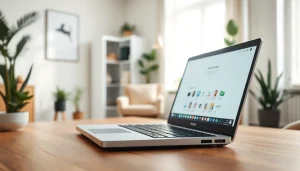Understanding the Impact of Delivery Apps in Lagos: Trends, Tips, and User Insights

The Rise of Delivery Apps in Lagos
The landscape of urban mobility has undergone a transformational change in Lagos—Nigeria’s bustling megacity. This evolution is marked by the increasing prominence of delivery apps in Lagos, which have become integral to the daily lives of its residents. From groceries to meals, these apps cater to a diverse range of needs, reflecting the dynamic nature of the city’s populace.
History and Evolution of Delivery Services
The history of delivery services in Lagos can be traced back to traditional methods of transporting goods, where local businesses relied on informal networks. However, with the advent of digital technology in the early 2000s, physical boundaries began to dissolve. The introduction of mobile phones paved the way for more organized and efficient services, culminating in the rise of dedicated delivery apps in the 2010s.
Initially, many early adopters were seen in sectors like restaurant delivery, where companies like Jumia Food started leveraging technology to connect consumers with vendors. As the usage of smartphones surged, more entrepreneurs identified the potential in logistics and transportation, leading to the development of various platforms, including courier services and grocery apps. As a result, the competition has intensified, spurring innovations and improved services tailored to meet local demands.
Market Penetration and User Adoption Trends
As of 2023, the market penetration of delivery apps has reached impressive heights in Lagos, with numerous players competing for attention. Recent studies indicate that over 60% of Lagosians have utilized some form of delivery service, showcasing a remarkable trend towards convenience in shopping and dining. User demographics show that millennials and Gen Z, who are tech-savvy and often seek instant gratification, lead the charge in adoption rates.
Furthermore, user adoption is backed by extensive marketing campaigns and promotional offers by various delivery platforms, aiming to attract a loyal customer base. The addition of customer referral programs has also played a crucial role in expanding their reach into less tech-oriented communities. Thus, the delivery app culture continues to grow, signifying a strong preference for convenience in urban lifestyles.
Challenges Facing Delivery Apps in Lagos
Despite the success of delivery apps in Lagos, several challenges persist that impact their operations and customer satisfaction. Key among them is infrastructural inadequacies. Many roads in Lagos are riddled with potholes and traffic congestion, making timely deliveries a pressing issue. This often leads to customer dissatisfaction, as users expect prompt service.
Another critical challenge includes rider safety. Delivery personnel frequently face risks while navigating the busy streets and are sometimes victims of crime or road accidents. Ensuring the safety and welfare of both riders and customers should be a priority for app operators to foster a trustworthy environment.
Additionally, the fluctuating economic landscape and rising fuel costs can impact operational costs, leading to increased charges for consumers or lowered wages for delivery personnel. These factors highlight the need for effective strategies and innovative solutions to overcome such challenges and sustain growth.
Key Features of Successful Delivery Apps
User-Friendly Interface and Experience
A critical factor for the success of delivery apps is the user interface design, which should be intuitive and straightforward. Users should navigate the ordering process seamlessly, with clear visuals and logical steps from browsing items to finalizing payments. An optimized mobile experience is essential, as most transactions occur via smartphones.
Moreover, incorporating features such as personalized recommendations based on past purchases enhances user experience. Feedback mechanisms can further provide users with the opportunity to rate and review their experiences, prompting app developers to improve functionality and service continually.
Real-Time Tracking and Customer Support
Real-time tracking capabilities are imperative for modern delivery apps, allowing customers to monitor their order’s progress and anticipate its arrival. This feature not only enhances transparency but also cultivates a sense of trust between users and the service provider. Users appreciate knowing precisely when to expect their delivery, which can significantly improve satisfaction levels.
Moreover, robust customer support is vital. Successful apps often employ chatbots and customer service representatives accessible through the app to address inquiries and complaints instantly. Efficient resolution of issues can lead to increased brand loyalty, making it easier to retain customers in a competitive marketplace.
Payment Options and Security Measures
Diverse payment options are crucial to cater to the varied financial preferences of users. Integrating traditional methods such as cash on delivery alongside electronic payments, including credit/debit cards and mobile wallets, enhances user convenience. Additionally, payment security is non-negotiable in building user trust. Employing advanced encryption technologies and secure payment gateways can mitigate risks associated with online transactions.
Furthermore, reinforcing security measures, such as two-factor authentication for payment processes, can significantly minimize fraud risks, providing users peace of mind when utilizing delivery services.
Comparative Analysis of Leading Delivery Apps
SWOT Analysis of Top Competitors
In the Lagos delivery service market, several key players dominate, each with its unique strengths and weaknesses. Conducting a SWOT analysis can help illuminate opportunities and threats that these apps face. For instance, companies like Jumia Food may have established brand recognition and an extensive vendor network, contributing to their market leader status.
However, their size may also present challenges such as stiff competition from newer, more agile companies that focus on niche markets or offer innovative solutions. Competitors must leverage their strengths, such as technology integration and consumer insights, while addressing weaknesses like service inconsistencies or delivery time issues.
User Reviews and Rating Insights
User-generated feedback plays an instrumental role in shaping the perception and growth of delivery apps. Ratings and reviews posted on app stores or social media provide actionable insights into customer preferences, satisfaction levels, and areas needing improvement. High ratings can drive new user engagement, while negative feedback can serve as a red flag, signaling necessary changes to operational practices.
Monitoring these reviews allows app providers to adapt swiftly to consumer needs, enable responsive customer service strategies, and cultivate a positive reputation.
Unique Selling Propositions in the Market
Within the crowded delivery landscape, defining unique selling propositions (USPs) is essential for any app aiming to carve out its own niche. Some apps may offer specialized services, such as same-day delivery or partnerships with local artisans, which resonate with conscious consumers seeking sustainability.
Others may prioritize enhanced loyalty rewards, exclusive partnerships with restaurants for unique promotions, or even community-driven movements that address specific local challenges. Understanding and clearly communicating these USPs can significantly influence consumer choice in favor of one app over another.
Best Practices for Using Delivery Apps in Lagos
Peak Hours and Delivery Timing Strategies
Understanding peak hours is vital for both customers and delivery personnel. Typically, evenings and weekends witness higher demand as consumers seek convenience after work hours. Delivery users should plan their orders accordingly to avoid long wait times or service disruptions. Additionally, delivery personnel equipped with insights into peak traffic times can adjust their routes, enhancing efficiency in service delivery.
Cost-Effective Usage of Delivery Services
To optimize the use of delivery apps, users can adopt a few strategic practices. For instance, they can track promotions, discounts, and loyalty programs offered by different services, which can significantly reduce delivery costs. Pooling orders with friends for group deliveries can also minimize expenses associated with individual orders and maximize convenience.
Furthermore, users can explore membership programs of specific delivery apps that provide flat-rate delivery charges, especially for frequent users, thus ensuring predictable expenditure.
Safety Tips for Users and Riders
User and rider safety is paramount in the thriving environment of delivery apps. Users should ensure they share their location with trusted contacts during deliveries, particularly when receiving deliveries during late hours. Additionally, confirming the identity of the delivery personnel by checking their profiles and vehicle details is advisable before handing over items.
Riders should also take precautions, such as wearing helmets and following traffic regulations, to protect themselves while fulfilling deliveries. Delivery companies must foster a culture of safety by providing riders with protective gear and training on safe riding practices.
Future Trends in Delivery Apps for Lagos
Technological Advancements and Innovations
The future of delivery apps in Lagos will be heavily influenced by technological advancements. As artificial intelligence and machine learning become more prevalent, delivery apps may enhance their operations through predictive analytics, allowing for smarter routing and efficient order allocation.
Beyond AI, technologies such as drones and autonomous vehicles are set to revolutionize the delivery scene, potentially reducing delivery times and minimizing human involvement in labor-intensive tasks. However, the successful implementation of such technology requires navigating legal and regulatory frameworks that govern urban delivery.
Impact of E-commerce Growth on Delivery Services
The exponential growth of e-commerce in Nigeria directly correlates with the increasing reliance on delivery services. As more businesses transition online to reach broader audiences, the need for efficient logistics solutions has never been more prevalent. Delivery apps are likely to expand their partnerships with e-commerce platforms to provide seamless integration for consumers.
This symbiotic relationship will also necessitate upgrades in technology and logistics capacity to accommodate increased order volumes, ultimately driving competition and innovation within the delivery sector.
Potential Regulatory Changes to Consider
The regulatory landscape surrounding delivery services is continuously evolving, and staying ahead of potential changes is crucial for companies operating in Lagos. Authorities may introduce updated safety regulations for both vehicles and riders, alongside policies addressing consumer protection rights.
Delivery apps must remain proactive in engaging with regulatory bodies to influence and adapt to these changes effectively. Additionally, adjusting operational practices to be compliant with new regulations can cultivate stronger relationships with consumers, ensuring service integrity and trust.







